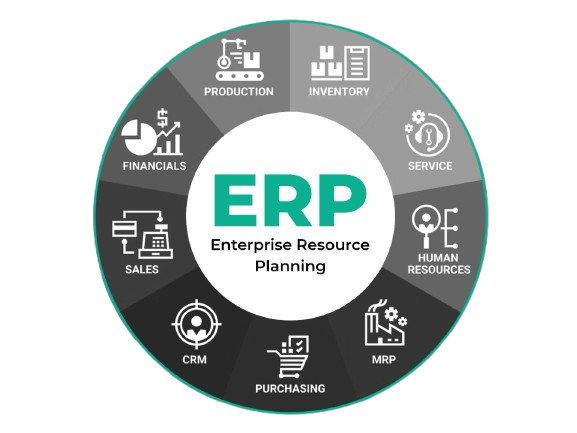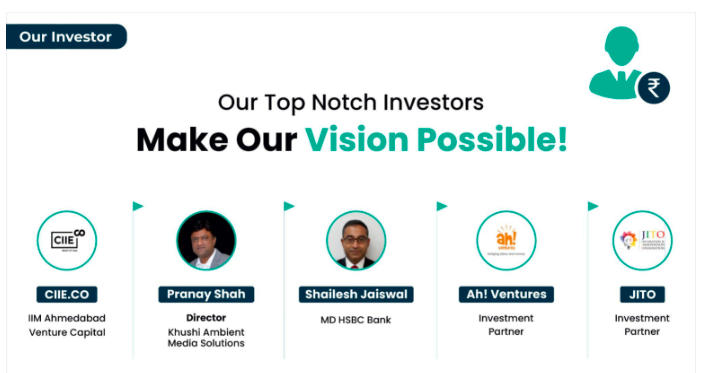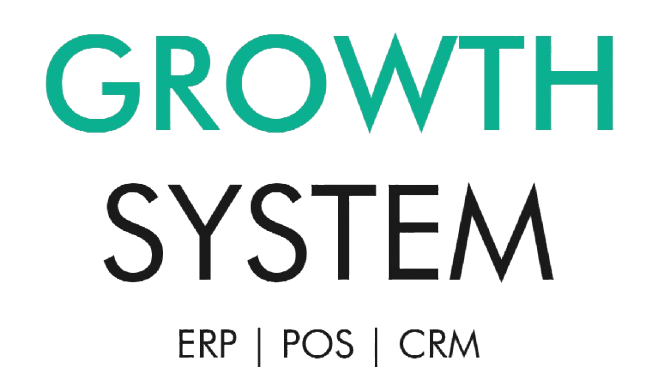What is an ERP :-

ERP is a Single software to run and manage your entire business. It helps to boost your productivity and reduce the operational cost of your business.
- Incoming Enquiries from existing or new customers
- Develop Sampling Sheet of Garment
- Costing of your Style
- Quotation Management
- Order Management
- Bill of Material (BOM) Management - Sampling Sheet of your product
- Purchase Management - Based order received system will auto tell how much fabric should be ordered from market, it will auto consider the available inventory. It also helps to see your stock by aging and thus help you reduce your dead inventory and increase working capital.
- Production Management - Auto create Job card based as soon as previous Job card is completed.
- Example as soon as Cutting is completed, it will make a Job card of Stitching, thus no time delay or missing an operation.
- Delivery Management
- Ex: As soon as Order is received, if finished inventory is available then system auto notifies the dispatch team to plan the delivery
- Ex: Or as soon as production is completed it auto notifies the dispatch team to deliver the order.
- Accounts Management - Account receivable, Account payable, customer ledger, auto reminders, Bank Integrations, Auto Reconciliations, Balance sheet, PNL, Cash Flow Statements.
- Compliance Management - Like GST, Eway, Invoice, GSTR1
- HRMS - Employee Management, Auto Payroll, PF ESI deduction etc
- Goals Management
- To Do & Calendar Management
Are you struggling with?
- Working 24*7, Constantly chasing employees to get the work done and even after chasing work does not get done
- Sales are not growing
- Sales team does not achieve targets
- Loss of orders due to poor Client Follow Up
- Margins are shrinking, Costs going up
- You have to fight competition, Discounting, Credit
- Payments don't come in on time, which leads to Cash flow becoming a struggle & Debts are killing you
- You do not have the right team,
- You are not able to find good people
- Team does not take responsibility & perform
- You have to keep following up
- Most of the work you have to do yourself
- Your company has become a training center; people get trained and leave
- Increment is a big struggle
- You know there is corruption but cannot do anything
- If you leave office most of the work stops
- There are emergencies and fire fighting all day
- There is just no time for family or personal life & you feel like your best years are passing you by & the joy of doing business is no longer there - even after working 24x7 Business is not growing & Profits are no longer there
Features of ERP can be divided based into various Modules -:
| Module Name | Sub Modules | Benefit |
|---|---|---|
| Growth | Goals | Manage your Company's Long term Goals |
| To Do | Manage your companies daily non regular task by assigning them to individuals | |
| Events | Helps you remember about the upcoming meetings. | |
| CRM | Directory | Could be used to manage customer information, including retailers, wholesalers, and individual consumers. It could also be used to store contact information for suppliers of raw materials, trims, and other components. |
| Marketing | Could be used to plan and execute marketing campaigns to promote new product lines, target specific customer segments, and build brand awareness. | |
| Lead | Capture and nurture potential leads to convert them into customers. | |
| Customer | Manage customer data, track interactions, and build strong relationships. | |
| Enquiry | Track and manage customer inquiries efficiently. | |
| Quotation | Generate and manage quotes for products/services, track their status, and convert them into orders. | |
| Orders | Process customer orders, manage inventory, and track order fulfillment. | |
| Delivery | Manages the entire order fulfillment process, from order confirmation to delivery and tracking, ensuring timely and accurate deliveries. | |
| Invoicing | Automates invoice creation, sends invoices to customers, and tracks payments, improving cash flow and reducing manual errors. | |
| Supply Chain | ITEMS | This module deals with managing the inventory of various items used in the garment manufacturing process. This includes raw materials (fabric, thread, buttons, etc.), consumables, and finished goods. |
| BOMs & Sampling | This module is responsible for managing Bill of Materials (BOMs). BOMs define the components and quantities required to manufacture a specific garment style. Sampling refer to managing and tracking samples of fabrics, trims, or finished garments. | |
| PPC | Stands for "Production Planning & Control." This module would be crucial for managing the production schedule, allocating resources, tracking production progress, and ensuring timely delivery. | |
| Material Request | This module allows users to create requests for materials needed for production. | |
| Supplier Request | This module is used to request quotations or information from potential suppliers. | |
| PO | This stands for "Purchase Order." This module is used to create and manage purchase orders for materials and other supplies | |
| PR | This stands for "Purchase Requisition." This module may be used to initiate the procurement process by requesting authorization to purchase specific items. | |
| WO (Initiation) | This module is used to initiate Work Orders, which are instructions for production tasks. | |
| JC Issue | This refers to issuing Job Cards. Job Cards are documents that provide detailed instructions for specific production tasks or operations. | |
| JC Receive | This module is used to record the completion of Job Cards, indicating that a specific task has been completed. | |
| WO (Ongoing) | This module likely tracks the progress of Work Orders that are currently in production. | |
| Accounting | Payables | This module would provide the functionalities mentioned above for managing accounts payable processes efficiently. |
| Receivables | This module would provide the functionalities mentioned above for managing accounts receivable processes efficiently. | |
| GST India | Designed to handle various aspects of Goods and Services Tax (GST) compliance for businesses in India. | |
| HR | Recruitment | Streamlines the recruitment process, automates job postings, and simplifies candidate screening and selection |
| Employee Lifecycle | Manages the entire employee lifecycle, from onboarding to offboarding, ensuring compliance with HR policies and procedures. | |
| Performance | Tracks employee performance, sets goals, and provides feedback, improving employee engagement and productivity. | |
| Shift and Attendance | Manages employee shifts, tracks attendance, and calculates payroll, reducing manual effort and ensuring accurate payroll processing. | |
| Expense Claim | Manages employee expense claims, automates reimbursement processes, and ensures compliance with expense policies. | |
| Leave | Manages employee leave requests, tracks leave balances, and ensures compliance with leave policies. | |
| Payroll | Calculates and processes employee payroll, ensuring accurate and timely payments. | |
| Dashboard | CEO Dashboard | Provides a high-level overview of key business metrics, enabling informed decision-making. |
| CRM Dashboard | Tracks key sales and marketing metrics, providing insights into customer behavior and sales performance. | |
| Selling Dashboard | Provides insights into sales trends, customer engagement, and sales performance, helping to identify areas for improvement. | |
| Accounting Dashboard | Provides a consolidated view of key financial metrics, enabling quick analysis and decision-making. | |
| Human Resource Dashboard | Tracks key HR metrics, such as employee turnover, recruitment costs, and training expenses, providing insights into HR performance. | |
| Stock Dashboard | Provides real-time visibility into inventory levels, stock movement, and potential stockouts, enabling better inventory management. | |
| Reports | Stock | Generates reports on inventory levels, stock movement, and potential stockouts, enabling better inventory management and preventing stockouts. |
| Production | Generates reports on production progress, costs, and yields, helping to identify areas for improvement and optimize production processes. | |
| HR | Generates reports on employee data, attendance, performance, and payroll, providing insights into HR performance and compliance. | |
| Masters | Stock | Manages stock-related master data, such as item categories, units of measure, and warehouses, ensuring data accuracy and consistency. |
| Selling | Manages selling-related master data, such as customers, pricing lists, and sales territories, enabling efficient sales operations. | |
| Buying | Manages buying-related master data, such as vendors, purchase categories, and terms of payment, facilitating smooth procurement processes. | |
| Production | Manages production-related master data, such as work centers, production routes, and BOMs, ensuring accurate production planning and execution. |
About the company
- Incubated by IIM Ahmedabad Venture, and Venture capital Backed, Growth System Specialise in custom ERPs.
- Growth System was Founded in 2017 as Guitaa Web Services and later on the company developed Guitaa.com (AI based Music tech product, which has user base from 200+ countries and Million + Active users). Post then the company was also developing and taking various Large Scale ERP Projects including projects for Gov of India and developed Indian level MIS system ERP.
- Later on in 2022 company rebranded itself to Growth System, with a Vision to empower Indian Business with Global Standard Softwares to take the Indian business to Global landscape.

What you'll get
-
Streamlined Production Processes
-
Real-Time Production Tracking
-
Reduced Production Costs
-
Accurate Inventory Management
-
Improved Inventory Control
-
Efficient Production Planning & Scheduling
-
Enhanced Quality Management
-
Seamless Supply Chain Collaboration
-
Increased Supply Chain Visibility
-
Integrated Quality Control Processes
-
On-Time Delivery Performance
-
Comprehensive Cost Management Tools
-
Data-Driven Decision Making
-
Detailed Reporting and Analytics
-
Improved Profitability
-
Improved Communication and Collaboration
-
Gross profit by item, item group, customer, customer group, month
-
All on one Suit - CRM + Supply Chain + Accounts + HRMS + AI
-
Cloud based
-
Drill Down Reports to easily track business progress in 3 simple reports
Videos
-
Goals
4 sec watch PreviewManage your Company's Long term Goals
To Do
1 min watchTo Do Manage your companies daily non regular task by assigning them to individuals
Events
1 sec watchHelps you remember about the upcoming meetings.
-
Directory
1 min watchCould be used to manage customer information, including retailers, wholesalers, and individual consumers. It could also be used to store contact information for suppliers of raw materials, trims, and other components.
Marketing
2 mins watchCould be used to plan and execute marketing campaigns to promote new product lines, target specific customer segments, and build brand awareness.
Lead
1 min watchCapture and nurture potential leads to convert them into customers.
Customer
45 sec watchManage customer data, track interactions, and build strong relationships.
Enquiry
1 min watchTrack and manage customer inquiries efficiently.
Quotation
50 sec watchGenerate and manage quotes for products/services, track their status, and convert them into orders
Orders
48 sec watchProcess customer orders, manage inventory, and track order fulfillment.
Delivery
55 sec watchDetailed explanation of the latest curriculum changes.Manages the entire order fulfillment process, from order confirmation to delivery and tracking, ensuring timely and accurate deliveries.
Invoicing
40 sec watchAutomates invoice creation, sends invoices to customers, and tracks payments, improving cash flow and reducing manual errors.
-
ITEMs
1 min watchThis module deals with managing the inventory of various items used in the garment manufacturing process. This includes raw materials (fabric, thread, buttons, etc.), consumables, and finished goods.
BOMs & Sampling
1 min watchThis module is responsible for managing Bill of Materials (BOMs). BOMs define the components and quantities required to manufacture a specific garment style. Sampling refer to managing and tracking samples of fabrics, trims, or finished garments.
PPC
55 sec watchStands for "Production Planning & Control." This module would be crucial for managing the production schedule, allocating resources, tracking production progress, and ensuring timely delivery.
Material Request
1 min watchThis module allows users to create requests for materials needed for production.
Supplier Request
1 min watchThis module is used to request quotations or information from potential suppliers.
PO
1 min watchThis stands for "Purchase Order." This module is used to create and manage purchase orders for materials and other supplies
PR
20 sec watchThis stands for "Purchase Requisition." This module may be used to initiate the procurement process by requesting authorization to purchase specific items.
WO (Initiation)
45 sec watchThis module is used to initiate Work Orders, which are instructions for production tasks.
JC Issue
30 sec watchThis refers to issuing Job Cards. Job Cards are documents that provide detailed instructions for specific production tasks or operations.
JC Receive
35 sec watchThis module is used to record the completion of Job Cards, indicating that a specific task has been completed.
WO (Ongoing)
45 sec watchThis module likely tracks the progress of Work Orders that are currently in production.
-
Payables
50 sec watchThis module would provide the functionalities mentioned above for managing accounts payable processes efficiently.
Receivables
watchThis module would provide the functionalities mentioned above for managing accounts receivable processes efficiently.
GST India
watchDesigned to handle various aspects of Goods and Services Tax (GST) compliance for businesses in India.
-
Employee Lifecycle
1 min watchManages the entire employee lifecycle, from onboarding to offboarding, ensuring compliance with HR policies and procedures.
Performance
watchTracks employee performance, sets goals, and provides feedback, improving employee engagement and productivity.
Integration of inventory data with sales channels for seamless management.Shift and Attendance
watchManages employee shifts, tracks attendance, and calculates payroll, reducing manual effort and ensuring accurate payroll processing.
Expense Claim
watchManages employee expense claims, automates reimbursement processes, and ensures compliance with expense policies.
Leave
watchManages employee leave requests, tracks leave balances, and ensures compliance with leave policies.
Payroll
watchCalculates and processes employee payroll, ensuring accurate and timely payments.
-
CEO Dashboard
watchProvides a high-level overview of key business metrics, enabling informed decision-making.
CRM Dashboard
watchTracks key sales and marketing metrics, providing insights into customer behavior and sales performance.
Selling Dashboard
watchProvides insights into sales trends, customer engagement, and sales performance, helping to identify areas for improvement.
Accounting Dashboard
watchProvides a consolidated view of key financial metrics, enabling quick analysis and decision-making.
Human Resource Dashboard
watchTracks key HR metrics, such as employee turnover, recruitment costs, and training expenses, providing insights into HR performance.
Stock Dashboard
watchProvides real-time visibility into inventory levels, stock movement, and potential stockouts, enabling better inventory management.
-
Stock
watchGenerates reports on inventory levels, stock movement, and potential stockouts, enabling better inventory management and preventing stockouts.
Production
watchGenerates reports on production progress, costs, and yields, helping to identify areas for improvement and optimize production processes.
HR
watchGenerates reports on employee data, attendance, performance, and payroll, providing insights into HR performance and compliance.
-
Stock
watchManages stock-related master data, such as item categories, units of measure, and warehouses, ensuring data accuracy and consistency.
Selling
watchManages selling-related master data, such as customers, pricing lists, and sales territories, enabling efficient sales operations.
Buying
watchManages buying-related master data, such as vendors, purchase categories, and terms of payment, facilitating smooth procurement processes.
Production
watchManages production-related master data, such as work centers, production routes, and BOMs, ensuring accurate production planning and execution.
Frequently Asked Questions
- Inventory Management: Track raw materials, work-in-progress, and finished goods. Manage stock levels, minimize waste, and optimize inventory turnover.
- Production Planning & Scheduling: Plan and schedule production runs, manage work orders, and track production progress. Optimize resource allocation and minimize lead times.
- Quality Control: Monitor production quality, track defects, and implement corrective actions. Ensure compliance with industry standards and customer requirements.
- Supply Chain Management: Manage relationships with suppliers and vendors, track orders, and ensure timely delivery of materials.
- Order Fulfillment: Process orders efficiently, manage customer relationships, and ensure timely delivery to customers.
- Cost Control: Track production costs, identify areas for cost reduction, and improve profitability.
- Compliance: Assist with compliance with industry regulations, labor laws, and environmental standards.
- Flexibility is Key: Ideally, the software should be adaptable to different types of garment manufacturing, including apparel, textiles, footwear, and accessories. It should be able to handle variations in production processes, materials, and order fulfillment requirements.
- Automation: Automating tasks like order processing, inventory management, and production scheduling can significantly improve efficiency and reduce manual labor costs.
- Data-Driven Decisions: The software can provide valuable data and insights that enable businesses to make informed decisions regarding production planning, resource allocation, and cost optimization.
- Reduced Waste: By optimizing production processes and minimizing errors, the software can help reduce waste in materials and time, leading to cost savings.
- Improved Quality: Better quality control can lead to fewer defects, reduced rework, and improved customer satisfaction.
- The implementation timeline can vary depending on the size and complexity of the business, the scope of the implementation, and the resources available. A typical implementation might take several weeks or months, involving data migration, user training, and system testing. The vendor should provide detailed project plans and timelines during the sales process.



